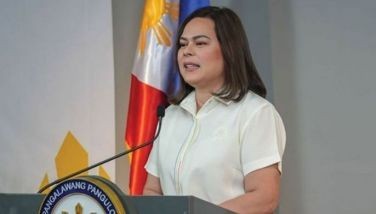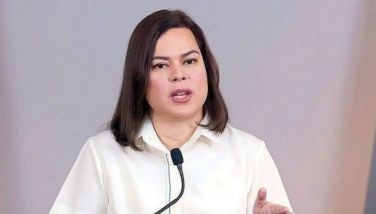Uplifting women who lift others
Across Southeast Asia, the COVID-19 pandemic has had a great impact on numerous start-ups and small enterprises. In the Philippines, more than half of the surveyed social enterprises reported that they were severely affected by the pandemic and the subsequent lockdowns, according to a study by the Institute for Social Entrepreneurship in Asia in 2020.
But women social entrepreneurs, like Flora Belinario, have found ways to rise above the challenge.
A fisheries technologist by profession, Belinario is among the founders of Tindagat, a social enterprise that serves as a bridge between local fishers and seafood lovers. A portmanteau of the Tagalog words tindahan (market) and dagat (sea), the start-up supports fishing communities by connecting them directly to their market through a digital platform.
Tindagat, and eventually the registered company Jasconius Technologies Inc., was the brainchild of Belinario and her three classmates in graduate school at the Asian Institute of Management.
“We started our social enterprise just when the pandemic started,” Belinario recalled. “When COVID-19 struck, I felt hopeless at first, but I think God put me through graduate school so that I can turn a disaster into an opportunity, not just for me, but for our partner fishers.”
Belinario is the lone woman in the four-person founding team. A proud mother of two teenagers, she admits that sometimes she finds difficulty juggling her responsibilities as a social entrepreneur and a mother – a balancing act that is not lost on many women social entrepreneurs.
In Southeast Asia, despite millions of women already contributing to economies, there is still an unequal playing field of economic opportunities between women and men.
In 2020, Ashoka, an international organization promoting social entrepreneurship, worked with S&P Global Foundation, the philanthropic arm of S&P Global, to identify the gaps and enablers in the field of women entrepreneurship.
Through 150 quantitative surveys of social entrepreneurs and 30 in-depth interviews with Ashoka Fellows from Indonesia, Malaysia, Philippines, Singapore and Thailand, the report found that women entrepreneurs see gender barriers as the obstacle that was “most difficult to break,” with 10 percent more women faced with these barriers compared to men.
The report, “Advancing Women Social Entrepreneurs in ASEAN,” also found that female entrepreneurs tend to work more towards building inclusive communities and, despite barriers and obstacles, continue to scale and replicate their work nationally and internationally.
The conversations with women social entrepreneurs in Southeast Asia underscored a common theme: the need for a strong community and structured mentorship to grow and navigate the challenges of social entrepreneurship.
In response to these needs, DIWA was born.
DIWA, which stands for Deepening Impact of Women Activators, was a three-month long online capacity building program, spearheaded by Ashoka in partnership with Deutsche Bank and S&P Global Foundation. The program was designed as a learning journey for women social entrepreneurs in Southeast Asia. Beyond empowering women to strengthen their impact, it establishes a network of strong female leaders and changemakers in the region.
The word “diwa” has powerful meanings in several languages in the ASEAN. In Tagalog, it stands for spirit, consciousness and will. Dewi or dewa in Bahasa Indonesia carry similar meanings. In Thai, diwa or tiwa means daylight.
All these point towards the main goal of the DIWA program: to capacitate women leaders and decision-makers, so that they may continue spreading light in their communities through their social enterprises.
Annie Yeo, Deutsche Bank regional director, said Ashoka’s DIWA program resonates with the bank’s strong culture of embracing diversity.
“The journey to social entrepreneurship can be a long and arduous one, especially in Asia [where] women entrepreneurs often do not have equal access to capital and business networks,” she said. “The DIWA program’s ultimate goal is to provide innovative solutions to address these social issues, enrich lives and create positive change for a better world.”
DIWA is Ashoka’s second training for women social entrepreneurs, following its Women Together for a Better Normal program in 2020.
This year, the DIWA cohort consisted of 44 women leaders working on various social enterprise projects in the Philippines, Thailand, Indonesia, Malaysia, Vietnam and Singapore.
S&P Global Foundation supported 34 women social entrepreneurs under the program, while 10 others were supported by Deutsche Bank.
Women entrepreneurs generally demonstrate more inclusive and people-centered leadership in social enterprises, applying resourcefulness and ingenuity to bring diverse people together and meet today’s challenges, said Cheryl Chen, director of corporate responsibility and sustainability for Asia Pacific of S&P Global Foundation.
“Together with Ashoka’s extensive expertise and experience, we believe that unlocking the potential of these entrepreneurs and changemakers and building their capacity with the DIWA program will also unlock social and economic value for their communities, helping to scale solutions that are systemic and sustainable,” she said.
Despite the limitations of their remote learning, the DIWA cohort produced tangible outputs they can use beyond the program itself. Through their workbooks, they mapped out their social enterprise journeys, designed their business models and outlined timelines for the milestones in their respective start-ups.
For Belinario, taking part in the DIWA program opened her eyes to the possibilities, not just as a social entrepreneur, but as a woman. The newfound community of women leaders through the program, she said, was a strong network that she will continue to benefit from as a social entrepreneur.
“The pandemic and the challenges that we faced during the whole duration of the program only show how resilient a woman can be,” she said, adding that the program also underscored the importance of self-care. “Balancing the demands of my graduate school, work, start-up and being a mom is difficult, but [what] I have gained from the sessions fuels the passion and motivation in me that I can do more.”
- Latest
- Trending




























